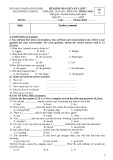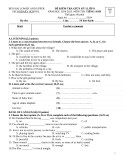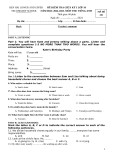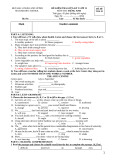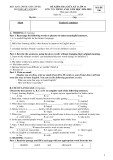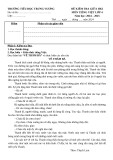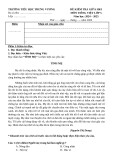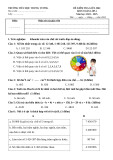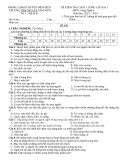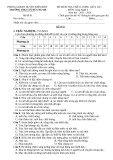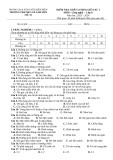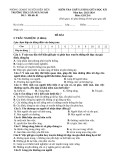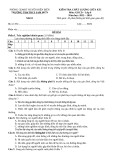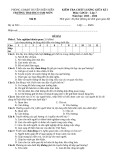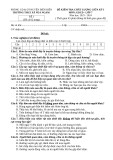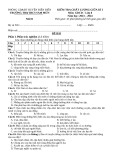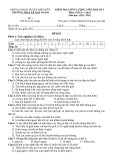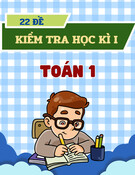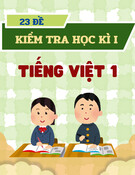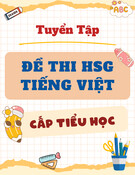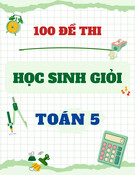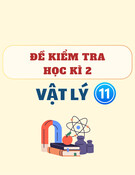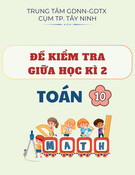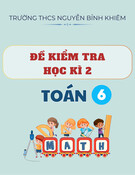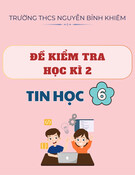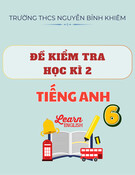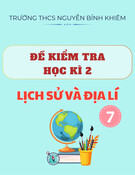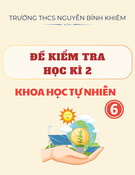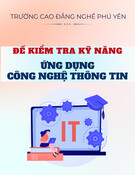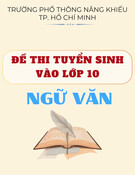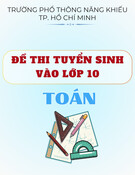
16. Look at those black clouds! It is going to raining.
A B C D
PART C: READING.(1). Read the following passage then answer the questions bellow.(1pts).
Alexander Fleming was born in 1881 in Scotland. He went to a small school in a village, and when he left
school he didn’t go to university. He worked for five years in an office. But his brother, Tom, was a doctor
and helped Fleming to go to university and study medicine. So he went to London University and in 1906
he became a doctor. In 1915, Fleming married Sarah McElroy, an Irish woman. They had one son. During
the First World War, many soldiers died in hospital because they didn’t have the right medicines. So after
the war, Fleming tried to find a drug that could help them. He worked for many years and in 1928 he
discovered a new drug and he called it “penicillin”. He later worked with an Australian and a German
scientist to develop a drug that doctors could use. In 1945, they won the Nobel Prize in medicine for their
work on penicillin.
17. Where was Alexander Fleming born?
………………………………………………………………………………………………………………
18. Did he work in an office before he went to university?
.........................................................................................................................................................................
19. What did he study at university?
………………………………………………………….….………………………………………………
20. When did he win the Nobel Prize in medicine?
…………………………………………….…………………………………………………………………
(2). Read the passage then choose the best answer by cicling A,B,C or D ( 1pts)
English is a very useful language. If we ...(21)... English, we can go to any countries we like. We will not
find it hard to make people understand. ...(22)... we want to say. English also helps us to learn all kinds
of ...(23)... . Hundreds of books are written in English every day in ...(24)... countries. English has also
helped us to spread ideas and knowledge to all corners of the world. Therefore, the English language has
helped to spread better understanding and friendship among countries of the world.
21: A. want B. do C. work D. know
22: A. where B. what C. who D. when
23: A. people B. friends C. subjects D. teachers
24: A. a B. the C. many D. much
PART D: WRITING.*Complete the sentences using “ be going to (1 pts)
25.I /do / an english test tomorrow.
->……………………………………………………………………………..…………………………….….
26.We/ not/ drink so much wine.
->………………………………………………………………………….…………………………….……..
27.What/ she/ do/ this evening?
->………………………………………………………………………….…………………………..……….
28./ he /have/haircut?
->………………………………………………….……………………………………………………………
*Put the correct form of the word in brackets to complete sentences,use to -infinitives or bare
infinitives(1pts)
29. Visitors are asked ……………………(not feed) the animals.
30. Before he let us go he made us …………… (promise) not to tell anyone what we had seen..
31. We don’t ……………. (want) anybody to know that we are here..
32. Would you like………………….(come) in my car?
PART E: LISTENING: You will hear someone talking about the changes in his hometown. Listen to
the talk and do the tasks that follow.
4






